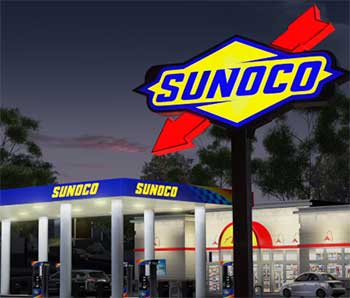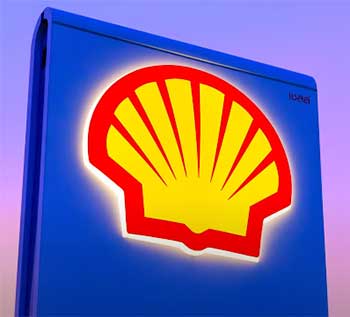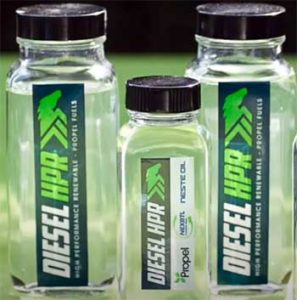Fuel quality plays a crucial role in your vehicle’s performance, longevity, and overall efficiency. Among the many gas brands available in the market, Sunoco and Shell gas consistently rank among the top.
But when it comes to choosing between these two, which one should you pick? In this article, we will compare Sunoco and Shell gas, focusing on their key features, pros, and cons.
A Brief Comparison Table
| Aspects | Sunoco Gas | Shell Gas |
| Fuel Options | Offers a wider range of fuels, including regular gasoline, diesel, ethanol, methanol, and racing fuels | Primarily offers gasoline and diesel, with a special emphasis on premium gasoline, Shell V-Power NiTRO+ |
| Additive Package | Uses the UltraTech additive package, designed to clean the engine, reduce deposits, and improve fuel efficiency | Uses the Shell V-Power NiTRO+ additives, designed to offer total engine protection, reduce friction, and clean the engine |
| Rewards Program | Offers various discounts but lacks a prominent rewards program | Has a comprehensive Fuel Rewards program, offering savings at the pump for frequent drivers |
| Availability & Network | Over 5,000 stations across 30 states in the U.S., making it readily available domestically | An extensive global network, making it easily accessible in many parts of the world |
Sunoco Gas: The Good, the Bad, and the Noteworthy
Often touted as the world’s largest racing fuel distributor, Sunoco is renowned for its high-performance fuels.
Pros of Sunoco Gas

- Quality: Sunoco prides itself on its UltraTech additive package, which is included in every grade of Sunoco gasoline. It helps clean your engine and minimize deposits, leading to improved fuel efficiency and engine lifespan.
- Variety: Sunoco offers a wide range of fuel options, including gasoline, diesel, ethanol, methanol, and racing fuels. Regardless of your fuel needs, Sunoco is likely to have a product for you.
- Availability: With over 5,000 stations across 30 states in the US, Sunoco’s extensive network means that you can fill up your tank almost anywhere.
Cons of Sunoco Gas
- Pricing: Sunoco gas prices can sometimes be a little higher than the average, especially in certain regions. The premium fuels can make a significant dent in your wallet over time.
- Less Prevalent: While Sunoco has an extensive network, it isn’t as ubiquitous as some other brands. You might struggle to find a Sunoco station in some parts of the country.
Also Read: Differences Between Exxon Synergy And Shell V-Power.
Shell Gas: Advantages, Disadvantages, and Highlighted Features
Shell, a global energy giant, offers high-quality fuels with advanced formulations. Their fuels are enhanced with a unique additive package known as Shell V-Power NiTRO+.
Pros of Shell Gas
- Quality: Shell gas is synonymous with high quality. The Shell V-Power NiTRO+ is a premium fuel designed to provide total engine protection, leading to better performance and engine lifespan.
- Rewards Program: Shell’s Fuel Rewards program can lead to substantial savings at the pump, making it a favorite among frequent drivers.
- Global Presence: Shell’s extensive global network means you can find their gas stations almost anywhere in the world.
Cons of Shell Gas
- Pricing: Like Sunoco, Shell gas can be a bit pricier than other brands, especially for their premium fuels.
- Fewer Fuel Options: Compared to Sunoco, Shell offers fewer fuel options. If you need specialized fuels like racing fuel, Sunoco might be a better choice.
Key Differences Between Sunoco and Shell Gas
Despite both being renowned for their high-quality fuels, there are some key differences between Sunoco and Shell that could tip the balance for potential users.
- Variety of Fuel Options
Perhaps the most striking difference between the two is the variety of fuel options they offer. Sunoco provides a wider range of fuels, including regular gasoline, diesel, ethanol, methanol, and even racing fuels.
On the other hand, Shell focuses primarily on gasoline and diesel, with a keen emphasis on their premium gasoline, Shell V-Power NiTRO+.
- Additive Packages

Both Sunoco and Shell gas are infused with additive packages designed to improve your engine’s performance and lifespan.
Sunoco uses the UltraTech additive package, which helps clean your engine, reduce deposits, and enhance fuel efficiency.
On the contrary, Shell uses the Shell V-Power NiTRO+ additives, which provide complete engine protection, mitigate friction, and clean the engine.
- Rewards Program
In terms of rewards and customer loyalty programs, Shell takes the lead with their Fuel Rewards program.
It allows customers to save at the pump, which can be especially beneficial for frequent drivers.
Sunoco, although offering various discounts, does not have a rewards program as prominent as Shell’s.
- Availability and Network
When it comes to availability, Shell’s extensive global network outshines Sunoco’s primarily U.S.-based stations. If international availability is a factor for you, Shell may be the more convenient option. Nevertheless, within the United States, Sunoco’s network of over 5,000 stations across 30 states provides substantial coverage.
While both Sunoco and Shell gas offer high-quality fuels, the main differences lie in their fuel variety, additive packages, rewards programs, and the scope of their station networks.
Consider these factors when choosing between the two to ensure that you pick the option that best aligns with your needs and priorities.
Also Read: What’s Wrong With Propel HPR Diesel?
Frequently Asked Questions (FAQ)
Both Sunoco and Shell provide high-quality gas. The choice depends on your specific needs. If you need specialized fuel types like racing fuels, Sunoco might be a better option. If you are looking for a rewards program and global availability, Shell could be your best bet.
Yes, Sunoco gas is good quality. It uses an UltraTech additive package in all fuel grades, which helps clean your engine, reduce deposits, and improve fuel efficiency.
Shell gas is of high quality. Its Shell V-Power NiTRO+ is designed to provide total engine protection, boosting both performance and engine lifespan.
Sunoco gas may be considered better for its variety of fuel options, including specialized ones like racing fuels. Additionally, its UltraTech additive package helps keep your engine clean and efficient. However, “better” is subjective and depends on your specific needs and preferences.
Final Thoughts
In conclusion, both Sunoco and Shell gas stand out in the crowded fuel market, and both have their unique strengths. Consider what matters most to you – be it availability, price, or fuel variety – to make an informed decision that best suits your needs.
After all, your vehicle deserves nothing but the best!




I used both gasolines in my 2012 GMC Canyon. Sunoco is a little bit better. I do wish Sunoco would have a fuel rewards at the pump.